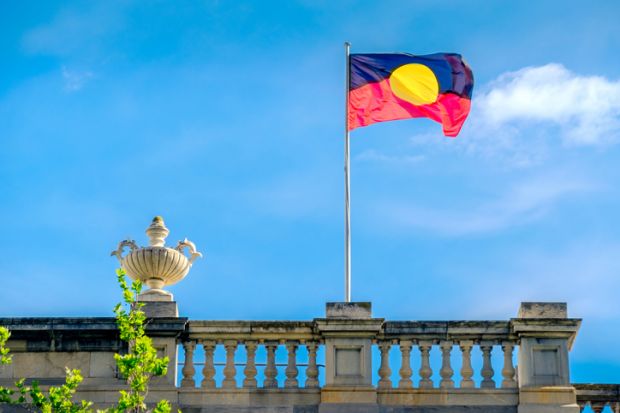Australia’s opposition says that it will consider the government’s proposal to waive the debts of graduates who teach in remote communities. However, a tertiary education policy expert says that the plan risks attracting the wrong sort of teacher.
The changes, announced by Prime Minister Scott Morrison, reduce the student debts of teachers in areas classified as “very remote”. Interest charges on the loans, levied at roughly the rate of inflation, will immediately be suspended.
And teachers who stay the course for four years will have their debts expunged entirely. “If you are a teacher in a very remote area, what you are doing is…an expression of love,” Mr Morrison told parliament on 14 February.
“We should never take advantage of that great act of love. If anything, we should reward it.”
Mr Morrison announced the changes while releasing the Closing the Gap report, an annual summary of progress in eliminating disparities between indigenous and non-indigenous Australians in health, education and employment.
It shows that the number of Aborigines and Torres Strait Islanders in higher education has more than doubled in a decade, from about 9,300 in 2007 to 19,200 in 2017. This compares with an increase of 44 per cent across the overall population.
But indigenous Australians remain underrepresented in higher education, comprising fewer than 2 per cent of students despite their 2.8 per cent share of the population. Enrolments are skewed towards women, who make up almost two-thirds of indigenous university students.
The report also found that while there had been progress in the proportion of indigenous students finishing school, they lagged behind the overall completion rate by 24 percentage points.
“We need to accelerate our efforts, particularly in our work in remote areas,” Mr Morrison said. “We must start with incentivising and rewarding teachers in remote communities.”
The move comes 20 months after the government scrapped a nine-year-old student debt discount scheme designed to increase maths and science teacher numbers. The “Hecs-Help benefit”, which was later extended to nursing, midwifery and early education graduates, offered discounts of almost A$2,000 (£1,100) a year.
It was abandoned because it had little effect on teacher numbers, with the pay-later nature of student loans thought to blunt the impact of discounts. Grattan Institute analyst Andrew Norton said that the new proposal had “one strength” over the previous scheme, which had mostly rewarded graduates “for taking the jobs they always wanted to get anyway”.
“It produced little if any behaviour change,” Mr Norton said. “In this case, the waiver might get people who always wanted to be teachers to go to very remote schools.”
But he said that the “big downside” of student fee waivers – compared with other salary supplements – was that they only incentivised people with substantial debts. “Usually they will be the least experienced workers, quite possibly straight out of university.
“Some of the toughest teaching jobs in the country should ideally be taken by people who have teaching experience.”
Shadow education minister Tanya Plibersek said that the opposition would “take a close look” at the government’s proposal. “We must all do more to close the gap in education,” she said.
But Ms Plibersek said that the most effective reform would be to abolish the cap on student numbers. “After the last Labor government uncapped uni places, indigenous student numbers jumped by around 90 percent.”
Register to continue
Why register?
- Registration is free and only takes a moment
- Once registered, you can read 3 articles a month
- Sign up for our newsletter
Subscribe
Or subscribe for unlimited access to:
- Unlimited access to news, views, insights & reviews
- Digital editions
- Digital access to THE’s university and college rankings analysis
Already registered or a current subscriber? Login








